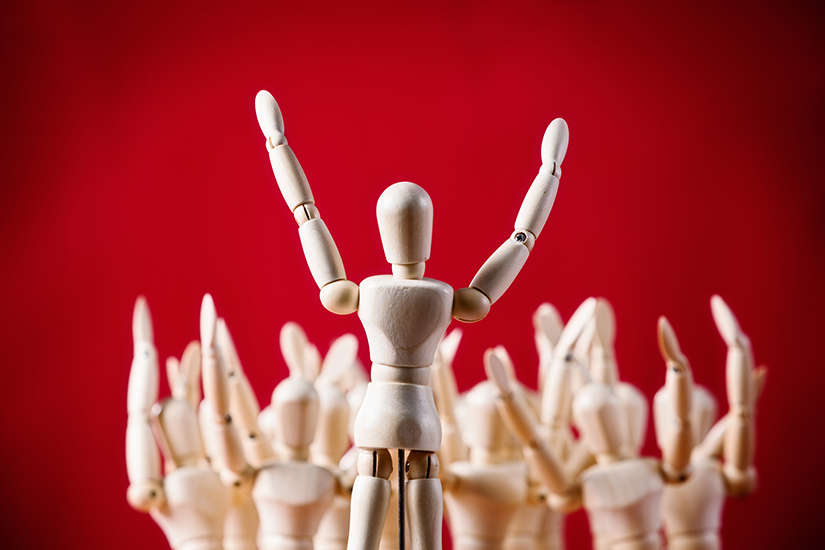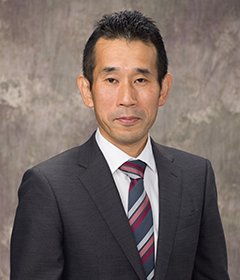Unprecedented events are currently occurring in international society. The world’s most closely watched issue is likely Israel's assault on Gaza. Gaza is experiencing the first “famine” in the history of the Middle East[1]. In November 2024, the International Criminal Court (ICC) issued arrest warrants for Prime Minister Netanyahu and others for war crimes and crimes against humanity[2]. Additionally, the International Association of Genocide Scholars (IAGS) have declared that Israel's actions in Gaza constitute a “genocide.”[3] Nevertheless, the international society has been unable to stop Israel's attacks on Gaza.
Looking around the world, conflicts are erupting in various regions. The number of “forcibly displaced people,” such as refugees and internally displaced persons, is setting new record highs every year, increasing by 48% over the past five years[4]. Meanwhile, exclusionary movements against refugees and immigrants are spreading across the world, especially in Western countries[5], while official development assistance (ODA) from developed to developing countries is declining[6]. Why is this happening?
This year marks the 80th anniversary of the founding of the United Nations (UN). Throughout history, humankind has created various universal values, such as humanitarian principles and human rights norms and have cultivated a culture to protect and uphold those values across international society. Today, these values are no longer being defended. This paper analyzes the causes of this phenomenon, first focusing on the governance system in international society, then examining its relevance to the recent rise of populism. Based on these analyses, I will discuss the measures that international society should take going forward.

The International Society without Enforcement Power
International society has traditionally positioned the UN as a coordinating body for multilateralism, and has established various international systems, mainly under its umbrella. However, it is crucial to understand that unlike the law enforcement systems within individual states, these international systems lack an inherent enforcement power. Within a nation-state, there exists a “legislature” that enacts laws, an “executive branch” that conducts activities based on those laws, and a ‘judiciary’ that makes judgements in accordance with the law. The “police,” functioning as part of the executive branch, has the function of law enforcement.
However, in an international society, such a system exists only in an ambiguous manner. For example, arrest warrants issued by the ICC are not binding on non-member states, like the United States and Russia. Furthermore, even among member states, there are no penalty provisions for non-compliance, rendering the orders unenforceable. Moreover, no “law enforcement agency,” which is equivalent to a police force within a nation-state, exists at the global level. While UN peacekeeping operations (PKO) possess armed forces, their mandate is ‘peacekeeping’ in countries or regions where conflict has ceased, not “peace enforcement” aimed at stopping conflicts through the usage of force. Nowadays, reaching consensus in the UN Security Council has become more difficult, and no new deployment of UN PKOs have been implemented since the operation to Haiti in 2017. While in the past, multinational forces have been deployed to places like Afghanistan, such deployments cannot be realized unless major powers, such as the United States, are involved and give their support. At the very least, regarding the current Israeli-Palestinian conflict, a scenario where the United States deploys troops to stop Israel's attacks on Gaza is unrealistic.
In other words, unless major countries like the United States take measures to dispatch its troops to support multinational forces, the international society does not have any means to forcibly halt conflicts. While the United States has previously deployed troops to places like Syria, Somalia, and Afghanistan, President Trump has declared that “the United States is stepping down from its role as the world's policeman.”[7] This shift in U.S. foreign policy has made this reality even more apparent.
The Rise of Populism and a Polarized Society
The rise of populism is considered a key factor behind the erosion of support for universal values such as the humanitarian principles. Andreas Schedler of the Central European University Democracy Institute describes populism as follows: “It positions the cleavage between the political elite born under democratic system and the citizens as the central axis of societal conflict. It denounces the current political system as a failure of democratic representation driven by self-interested elites. Yet, if populists seize power themselves, they risk transforming existing democracy into an electoral authoritarian system, by demanding extreme version of “delegative democracy” without checks and balances.”[8] The rise of populism is currently most prominent in Western countries[9]. This can be attributed to an environment where people are susceptible to populist appeals, driven by the spread of poverty within society, income inequality, and a growing segment of the population harboring dissatisfaction and anxiety about current and future economic and social prospects/conditions[10]. The gap between the “haves” and “have-nots” in society is widening, with many people falling into the latter category. Those who feel this way perceive themselves as being “left behind by society” and strongly demand that their government should address domestic issues and their personal problems, rather than engaging with global issues. Furthermore, newly integrated groups like refugees and immigrants are perceived as threats to society. This fuels a rising “citizens-first” mentality that prioritizes the interests of nationals over others, energizing exclusionary movements.
While many formerly developing countries achieve remarkable progress, most economies in developed countries experience economic stagnation or low economic growth, creating fertile ground for anxiety about the future. Against this backdrop, the gap in perception widens in advanced countries between those advocating for the support and promotion of universal values like humanitarian principles, and those prioritizing immediate improvements to their own living conditions over upholding such universal values. It is difficult to gain understanding from people who feel “left behind by society” when speaking to them about supporting Palestine, a place far removed from their own country. Consequently, as more people are swayed by populist rhetoric, the voices advocating for the protection of universal values appear to be garnering less support than before.

Neoliberalism and Globalization
From a broader perspective, looking at global trends since the 1980s, during which mainstream neoliberalism became mainstream, the wealthy grew richer while those unable to adapt to the trend became poorer, widening disparities within societies. Neoliberalism has accelerated globalization, creating a phenomenon where dynamic developing countries have grown their economies while advanced nations that lost momentum have been left behind. Furthermore, the international system that has formed over time has strengthened its legal binding power, gaining the independent authority to judge all nations—whether developed or developing—equally under norms that admit no exceptions. The World Trade Organization (WTO) is one example of this. Historically, the free trade system was led by developed countries, and the WTO was created to enforce and institutionalize this system rigorously. However, as the economic strength of developed countries waned, they began to suffer disadvantages under the free trade system. Furthermore, as the general public (the non-elite classes) within these developed countries suffered severe blows from the free trade system, they began taking actions that deviated from the international framework to protect these citizens. The unilateral tariff diplomacy under the Trump administration exemplifies this shift. In essence, while neoliberalism has vigorously advanced economic globalization and established liberal international orders and organizations to institutionalize it, this process has heightened anxiety and discontent among certain domestic segments, particularly in developed countries. Consequently, actions disregarding these international orders and norms have emerged in order to defend these affected groups[11].
Countries in the Global South, fed up with such self-righteous actions by developed countries, are beginning to build their own common networks and frameworks. The movement to expand BRICS membership is one such example. Developed countries are increasingly facing a situation where they grapple with social divisions domestically while also facing divisions internationally with the Global South.
What should be done going forward?
Presently, the international community is now moving toward an era where order is established not by adhering to “a jointly agreed upon rules-based international order,” but by “rule by force.” Global military spending has reached record highs every year since at least the end of the Cold War[12]. This pressures the proportion of government budgets, reducing spending allocated to social welfare sectors such as poverty reduction and inequality adjustment, as well as to economic growth sectors such as infrastructure and investment, making sustainable governance and social management impossible. It is necessary to reverse this trend from “rule by force” back toward “rebuilding an international order based on internationally agreed rules.” To achieve this, we must transform the international society where universal values are not upheld, as mentioned at the outset, back into one where universal values are respected and defended.
To this end, at least the following two measures/initiatives should be implemented. First, a necessary action is “addressing the causes that make people susceptible to populist rhetoric.” It is crucial to alleviate the anxieties and frustrations about the present and future felt by those who perceive themselves as “left behind” within each country. This requires formulating and implementing policies to support these individuals, correcting of disparities, promoting employment, and fostering economic growth. The rapid expansion of AI today may deprive workers of jobs and create a world where only capitalists prosper. Such a society could generate even more “left-behind individuals.” Formulating and implementing policies to avoid such an outcome would prove a difficult task but overcoming it is unavoidable for the purpose of rebuilding the international order among the global society.
Moreover, issues on immigrants and refugees are often politically exploited as tools to stoke social anxiety in current populist rhetoric[13]. Claims that immigrants and refugees take jobs away from citizens are frequently spread without factual basis. It is crucial to promote fact-checking to avoid being swayed by unreliable information.
Second, another crucial effort is to defend universal values by making every effort to explain the relevance between distant events and our own immediate society. Today, the supply chain systems vital to our daily lives, such as food, energy, and minerals, are spread across the entire international society. We live in an era of interdependence where events in distant countries or regions—such as conflicts, or societal destabilization due to climate change and natural disasters—impact the supply chain systems involving our own countries. Discussing distant global challenges without understanding the relevance between these geographically remote worlds and our own societies makes it difficult to garner widespread support. It is crucial to devote greater effort to communicating clearly the relationship between distant regions of the world and the societies we inhabit.
We have entered an era where universal values once cherished by people in the world do not have popular support. Yet, even amidst this, it is vital to envision what should be and to raise our voices to realize it. For example, an opinion poll conducted in May 2025 across six European countries showed public favorability toward Israel at its lowest level since 2016[14]. Such shifts in public opinion are likely contributing to the changing stances of governments like the United Kingdom and France toward Israel.
The United Nations was established as an organization bearing the purpose of “maintaining international peace and security, developing friendly relations among nations, achieving co-operation in solving international problems, and serving as a center for harmonizing the actions of its members.”[15] Over the subsequent 80 years, we have advanced our international society by documenting our experiences and pooling our wisdom to build a better international order. However, standing at the milestone of its 80th anniversary, the UN finds itself in a phase where its functions and significance are being questioned anew. Meanwhile, numerous challenges exist—such as climate change and the global economic system—that cannot be resolved by any single country alone. Anticipating the future decades ahead, it is necessary to view the current crisis of the UN as an opportunity and advance constructive discussions to build a better international society.
Japanese Prime Minister Ishiba's speech at the UN General Assembly in September 2025 strongly conveyed Japan's firm support for multilateralism led by the UN[16]. It included references to the necessity of Security Council reform and a two-state solution to the Israeli-Palestinian conflict. We look forward to Japan continuing to play a leading role in upholding universal values and multilateralism.

(2025/10/14)
Notes
- 1 “UN declares famine in Gaza City, the first in Middle East history,” France 24, August 22, 2025.
- 2 “ICC issues arrest warrants for Netanyahu, Gallant and Hamas commander,” United Nations, November 21, 2024.
- 3 Emir Nader, “Israel committing genocide in Gaza, world’s leading experts say,” BBC, September 2, 2025.
- 4 “Global Trends: Forced Displacement in 2024,” UNHCR, June 12, 2025.
- 5 As an example, in an Eurobarometer survey on “Discrimination in the EU” in 2023, 61% of respondents stated that “discrimination based on skin color is on the rise.”
“Monitoring and Assessing the Impact of National Action Plans Against Racism,” OECD, March 21, 2025. - 6 Alice Obrecht and Mike Pearson, “What new funding data tells us about donor decisions in 2025,” The New Humanitarian, April 17, 2025.
- 7 Richard Walker, “US under Trump no longer ‘policeman of the world’,” Deutsche Welle, November 6, 2024.
- 8 Andreas Schedler, “Again, What Is Populism?” Review of Democracy, February 1, 2024.
- 9 “Trend of political disruption kickstarts again in 2025,” Vision of Humanity, January 10, 2025.
- 10 “The Ipsos Populism Report 2025,” Ipsos, June 2025.
- 11 Stacie E. Goddard et al, “Liberalism Doomed the Liberal International Order: A Less Legalistic System Would Help Protect Democracies,” Foreign Affairs, July 28, 2025.
This article argues that the post-World War II international order advanced institutional building based on liberal principles (rather than political ones), leading to the creation of institutions such as the WTO and the International Criminal Court (ICC). These institutions eliminated ambiguity, strengthened the binding force of law, and gained powerful authority. However, such strict and powerful institutions began to cause inconvenience to the advanced countries that had previously promoted the formation of these organizations, emboldening critics of multilateralism and skeptics of free trade. Thus, the liberal international order is heading toward self-destruction due to its liberal nature (DNA). - 12 “Unprecedented rise in global military expenditure as European and Middle East spending surges,” SIPRI, April 28, 2025.
- 13 Ayhan Kaya, “The instrumentalisation of migration in the populist era,” Mixed Migration Center, May 2, 2025.
- 14 Ines Trindade Pereira, “Does the public support the government of Israel in Western European countries?” Euronews, June 6, 2025.
- 15 See UN Charter Article 1.
United Nation Charter, United Nation, accessed September 29, 2025. - 16 “Address by Prime Minister Ishiba at the Eightieth Session of the United Nations General Assembly,” Ministry of Foreign Affairs of Japan, September 24, 2025

